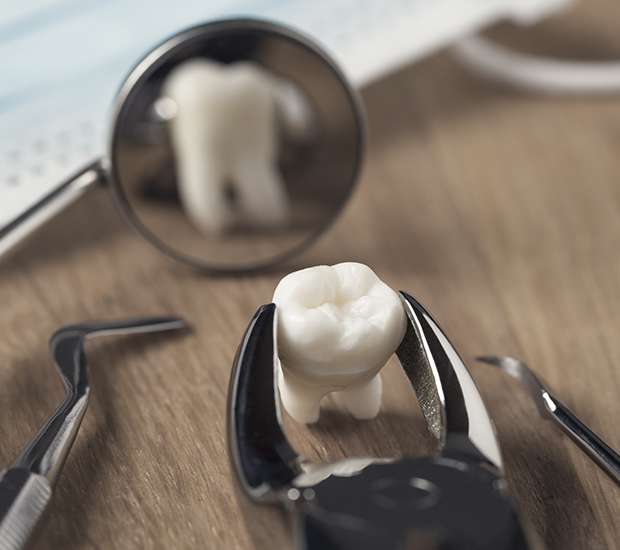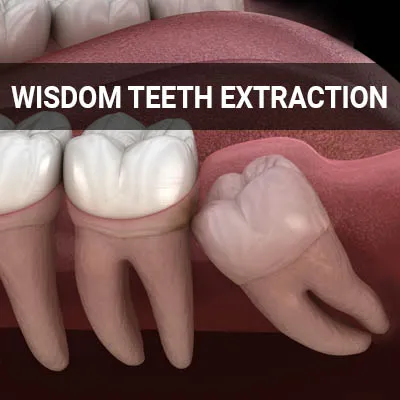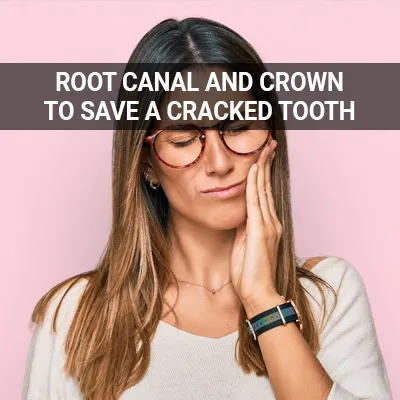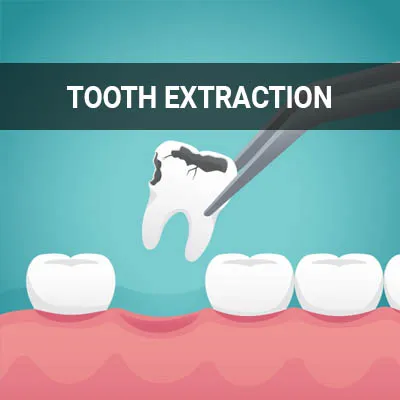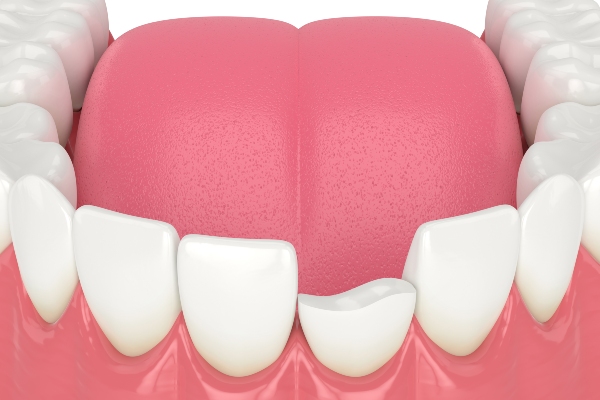When Is a Tooth Extraction Necessary North Miami Beach, FL
A tooth extraction involves removing an infected or damaged tooth to prevent further issues in the mouth while also protecting other teeth in the mouth. While it may not always be necessary, certain factors can lead to an extraction being the most effective option for treatment. Many people are intimidated when they hear they may need to extract a tooth.
It is only natural since most people grow up being told their adult teeth should last the rest of their lives. If an extraction is necessary, it is crucial to speak with a dental professional.
Tooth extraction is available at Biscayne Dental Center in North Miami Beach and the surrounding area. We can help take care of all your oral healthcare needs. Call us today at (305) 824-2271 to schedule an appointment or learn more about our services.
Tooth Extraction Is Normal
Adult teeth are meant to be permanent and last a lifetime. Unfortunately, however, even the most careful patients are not immune to accidents or dental issues. According to the American Dental Association (ADA), tooth extractions are usually necessary due to tooth crowding, dental disease, or orofacial trauma.
In most cases, the procedure itself is relatively simple and can be performed in a single dental appointment while the patient is under general anesthesia. Teeth that are visible above the gum line will require us to numb the extraction site before removing the tooth with forceps, while broken or impacted teeth will necessitate a more complex procedure.
“In most cases, [tooth extraction] itself is relatively simple and can be performed in a single dental appointment while the patient is under general anesthesia.”
Preventing Infection
According to the National Institute of Dental and Craniofacial Research, gum disease is the most common cause of tooth loss in adults. Gum disease occurs when bacteria get below the gum line and causes infections. Without treatment, oral bacterial leads to gum recession, damage to the jawbone, loose teeth, and even tooth loss.
Research has also shown chronic dental infections can cause inflammation that contributes to cardiovascular disease, stroke, and many other related diseases. While a root canal can often save a tooth from decay, sometimes a tooth is beyond saving due to lost structure and stability. Tooth extraction can prevent damaging decay and infection from spreading.
“Tooth extraction can prevent damaging decay and infection from spreading.”
Common Types of Tooth Extractions
Teeth are often extracted when they are either crowding or impacted. Crowded teeth cannot fit adequately in the mouth, while impacted teeth (usually wisdom teeth) do not have enough room to grow. Impacted wisdom teeth are among the most common types of tooth extractions, and they typically come in during a patient's late teens or twenties. Not all wisdom teeth have to be extracted. However, once they start causing problems, extraction may become necessary.
It is also not uncommon to require tooth extractions before receiving braces. Orthodontic treatment necessitates a proper realignment of the teeth, which requires adequate room in the mouth. As such, crowded teeth may require extraction to achieve desired results. This may also reduce the patient's risk of developing cavities and gum disease.
“Teeth are often extracted when they are either crowding or impacted.”
Check out what others are saying about our dental services on Yelp: When Is a Tooth Extraction Necessary in North Miami Beach, FL
When Tooth Restoration Is Not Enough
Typically, the first option to restore a damaged tooth is a crown or filling. If the damage is too severe, trying to save a tooth may put oral health at further risk. A filling may put the tooth at risk for shattering, while a tooth may not be strong enough to support a crown. Root canals are also not possible when there is too much tooth damage.
Each tooth has a limit to how many times it can be worked on before it starts to fail. Redoing a crown or root canal only buys so much time. After several fillings, crowns, and root canals, there will not be much of the tooth left to save. At that point, tooth extraction is the best option to maintain oral health.
“If the damage is too severe, trying to save a tooth may put oral health at further risk.”
Questions Answered on This Page
Q. Why is stopping infection from spreading important?
Q. When is restoration not enough to save a tooth?
Q. What sorts of trauma can necessitate tooth extraction?
Q. Is tooth extraction normal?
Q. What are the common types of tooth extractions?
People Also Ask
Q. When should one seek emergency dental care?
Q. What methods are available to repair a chipped tooth?
Q. What are partial removable dentures for one missing tooth?
Q. How does a dentist prepare a tooth for extraction?
Trauma and Tooth Extraction
Teeth are tough but not indestructible. Traumatic dental injuries can occur from a sports injury, car accident, or even a simple slip and fall. While many injuries are minor, if the tooth becomes severely damaged to the point where restoration is not possible, an extraction will be necessary.
After sustaining tooth trauma, patients should schedule an appointment quickly to improve their outcomes. Our team can look for signs of additional damage that may not be immediately obvious. Severely fractured teeth can be very loose and unable to be restored with dental work, thus making tooth extraction necessary. Patients should take any dental trauma seriously, even if it seems mild.
“While many injuries are minor, if the tooth becomes severely damaged to the point where restoration is not possible, an extraction will be necessary.”
Frequently Asked Questions
Q. Do tooth extractions hurt?
A. In most cases, the patient will receive general or local anesthesia to keep them comfortable during the procedure. Some teeth that require extraction have even lost some of their nerve signals. We will do everything in our power to keep your safety and comfort at the forefront of everything we do.
Q. What should I tell my dentist before my tooth extraction?
A. Tooth extraction is generally a safe procedure, but there is a small risk of harmful bacteria entering the bloodstream. It also puts gum tissue at a small risk of infection. As such, patients with any conditions that put them at high risk for developing a severe infection may need to take antibiotics before and after the extraction. Make sure to let Biscayne Dental Center know your complete medical history and any medications and supplements you are currently taking. It is also essential to let us know if you have congenital heart defects, artificial joints, damaged or man-made heart valves, impaired immune system, liver disease, or a history of bacterial endocarditis.
Q. When should I call the dentist after my tooth extraction?
A. Some swelling and residual bleeding 24 hours after a tooth extraction are normal and to be expected. However, you should call us immediately if you are experiencing severe pain and bleeding for more than four hours after the tooth extraction. You should also let us know if you are experiencing any signs of infection (such as fever and chills), nausea and vomiting, cough, shortness of breath, redness, swelling, chest pain, or excessive discharge from the treated area.
Q. What is it like to recover from a tooth extraction?
A. It usually takes a few days to recover from a tooth extraction. Some minor pain and discomfort are not unusual, and they can generally be controlled with over-the-counter medications. Eating soft foods, refraining from tobacco use, and applying an ice pack can also help.
Q. What happens after a tooth extraction?
A. We may prescribe you painkillers to prevent infection. Take these as directed. Do not rinse or spit forcefully for 24 hours after the extraction, lest you dislodge the clot forming in the socket. Remember to follow any other direction we provide you.
Dental Terminology
Call Us Today
When necessary, tooth extraction can relieve pain and give you have a more functional smile. Our team at Biscayne Dental Center can help determine whether you are a good candidate for this procedure. Call us at 305-824-2271 to learn more about our services or schedule an appointment.
Helpful Related Links
- American Dental Association (ADA). Glossary of Dental Clinical Terms. 2025
- American Academy of Cosmetic Dentistry® (AACD). Home Page. 2025
- WebMD. WebMD’s Oral Care Guide. 2025
About our business, license, and website security
- Biscayne Dental Center was established in 2011.
- We accept the following payment methods: American Express, Cash, Check, Discover, MasterCard, and Visa
- We serve patients from the following counties: Miami-Dade County
- We serve patients from the following cities: North Miami Beach, North Miami, Aventura, Sunny Isles Beach, Hallandale Beach, Bal Harbour, North Bay Village, Miami Shores, Golden Beach, Hollywood, Miami Gardens and Surfside
- FL (License #DN16637). View License Information and Specifics
- National Provider Identifier Database (1659464253). View NPI Registry Information
- Norton Safe Web. View Details
- Trend Micro Site Safety Center. View Details
Back to top of When Is a Tooth Extraction Necessary
